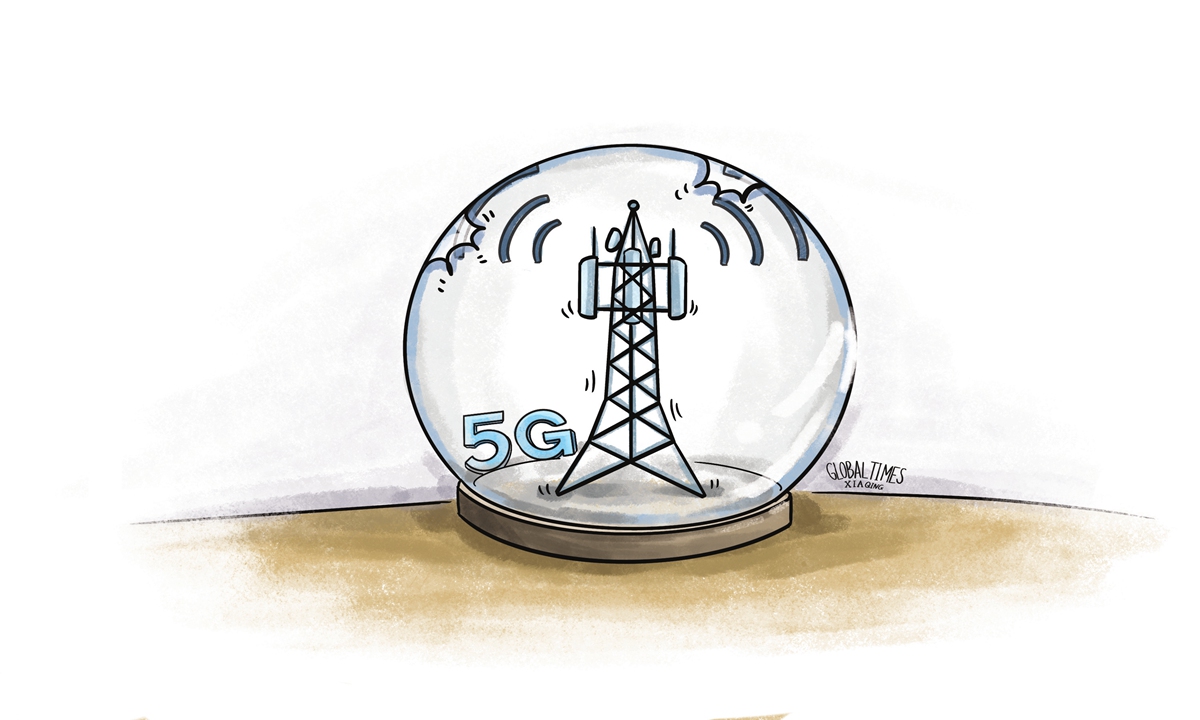
Illustration: Xia Qing/Global Times
India has further tightened the rules for telecom licenses, mandating operators to only purchase devices from "trusted sources" for not just network upgrades but also expansion, according to Indian media outlet Economic Times. The latest amendment has been seen as a step to "completely stop Chinese vendors" such as Huawei and ZTE from providing telecom gear to India telcos, said the report.
India is now using a "trusted sources" list to exclude Chinese companies from the market in disguise. This is actually imposing political interference to act against market rules. Although such move will likely protect the interests of individual Indian telecom companies, it will definitely delay India's 5G progress.
India's 5G developments need the supports of comprehensive national strength and communication infrastructure. It is still relatively backward in communication equipment manufacturing and 5G infrastructure construction in India. If India wants to solely rely on individual domestic companies to promote 5G development, its 5G network rollout may face further delay.
Earlier this year, Indian government planned to hold the 5G spectrum auction in June, with commercial launch on August 15. However, the auction has been delayed to July 26, according to recent media reports. As the countdown to rollout of 5G mobile services in the country continues, for average users in the country, it's still not clear when 5G will be available.
Compared with Indian companies, Chinese companies, including Huawei and ZTE, hold advantages in terms of technology and cost. Moreover, Chinese 5G giants Huawei and ZTE have always maintained a very good network security record.
If India insists on excluding Chinese companies from participating in India's 5G development, as industry analysts have said, this will undoubtedly further jeopardize the confidence of companies from the two countries to carry out mutually beneficial cooperation, and will limit the development of India's digital economy.
India's digital economy has grown rapidly in recent years, and this promising area has become a bright spot in the Indian economy. Several international consultancy firms found that India's digital economy is growing at one of the fastest rates in the world and its development journey is following China's.
At present, the Indian government also wants to accelerate the growth of this promising sector of its economy. According to media reports, India's digital economy's contribution to GDP is expected to reach 20 percent by 2025.
However, it's impossible for India to realize its ambitious goal by taking a protectionist approach. Behind its protective moves, India may have an alleged goal of boosting domestic industrial growth. But, at what cost?
As a comparatively mature digital player, Chinese telecom giants have great advantage to participate in India's 5G network construction. India should realize that the most reasonable and beneficial decision for the country is to truly revise its hard-line policy toward Chinese companies like Huawei and ZTE.
If India continues to go against market rules and adopt discriminatory policies against Chinese companies, most of the market share may be taken up by competitors from Western countries. India is bound to pay higher prices on 5G equipment and technology.
India's economy is currently under mounting pressures amid external uncertainties. In the critical stage of post-pandemic recovery, it is crucial for India to support the economy efficiently. Chinese companies will bring dynamism to the Indian digital economy. Why doesn't the Indian economy make good use their experience and advantages in the process of digitization? If India wants to realize its digital ambition, whether or not to grasp opportunities depends on its own decision.


